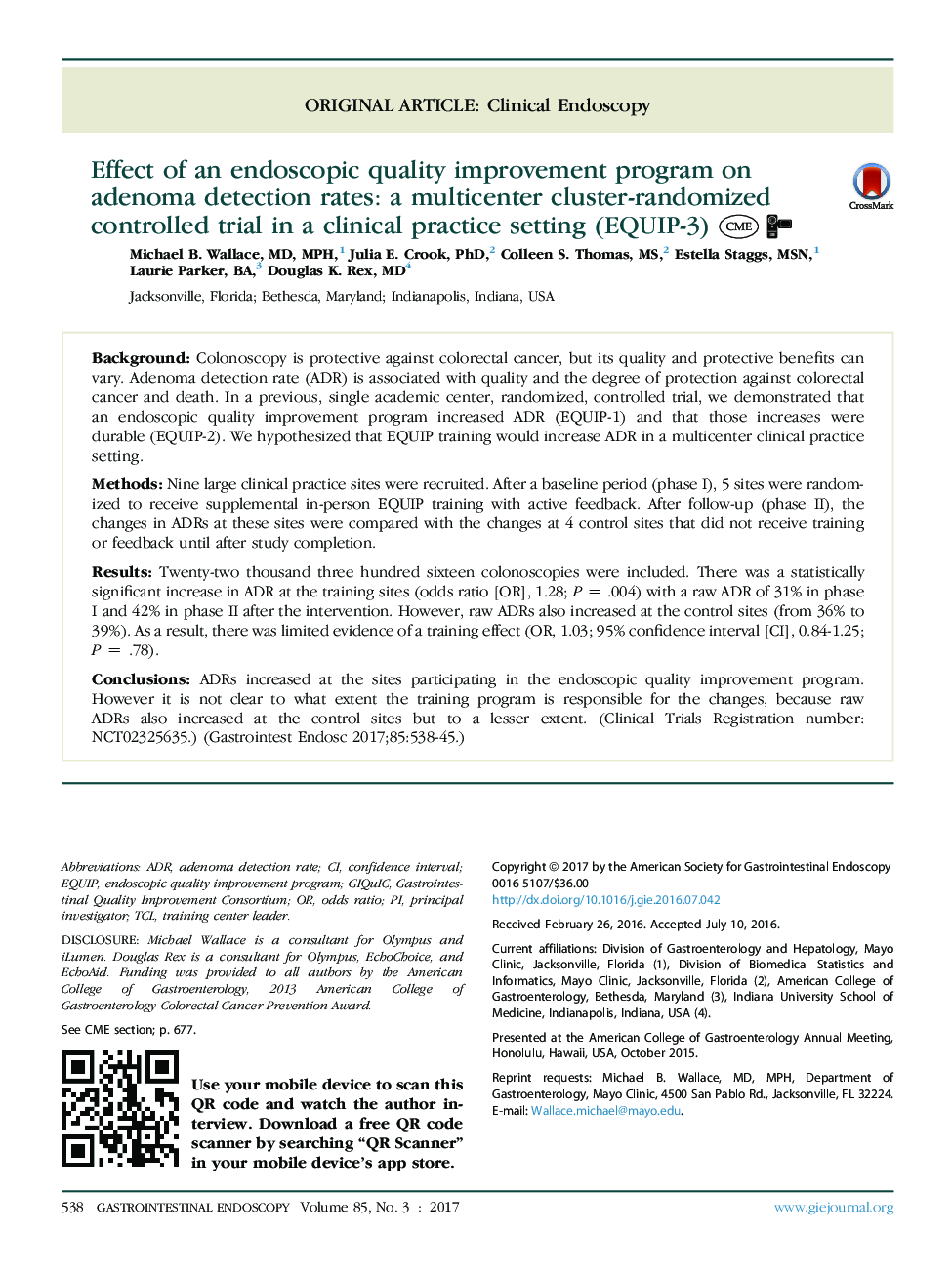| Article ID | Journal | Published Year | Pages | File Type |
|---|---|---|---|---|
| 5659463 | Gastrointestinal Endoscopy | 2017 | 12 Pages |
BackgroundColonoscopy is protective against colorectal cancer, but its quality and protective benefits can vary. Adenoma detection rate (ADR) is associated with quality and the degree of protection against colorectal cancer and death. In a previous, single academic center, randomized, controlled trial, we demonstrated that an endoscopic quality improvement program increased ADR (EQUIP-1) and that those increases were durable (EQUIP-2). We hypothesized that EQUIP training would increase ADR in a multicenter clinical practice setting.MethodsNine large clinical practice sites were recruited. After a baseline period (phase I), 5 sites were randomized to receive supplemental in-person EQUIP training with active feedback. After follow-up (phase II), the changes in ADRs at these sites were compared with the changes at 4 control sites that did not receive training or feedback until after study completion.ResultsTwenty-two thousand three hundred sixteen colonoscopies were included. There was a statistically significant increase in ADR at the training sites (odds ratio [OR], 1.28; P = .004) with a raw ADR of 31% in phase I and 42% in phase II after the intervention. However, raw ADRs also increased at the control sites (from 36% to 39%). As a result, there was limited evidence of a training effect (OR, 1.03; 95% confidence interval [CI], 0.84-1.25; P = .78).ConclusionsADRs increased at the sites participating in the endoscopic quality improvement program. However it is not clear to what extent the training program is responsible for the changes, because raw ADRs also increased at the control sites but to a lesser extent. (Clinical Trials Registration number: NCT02325635.)
